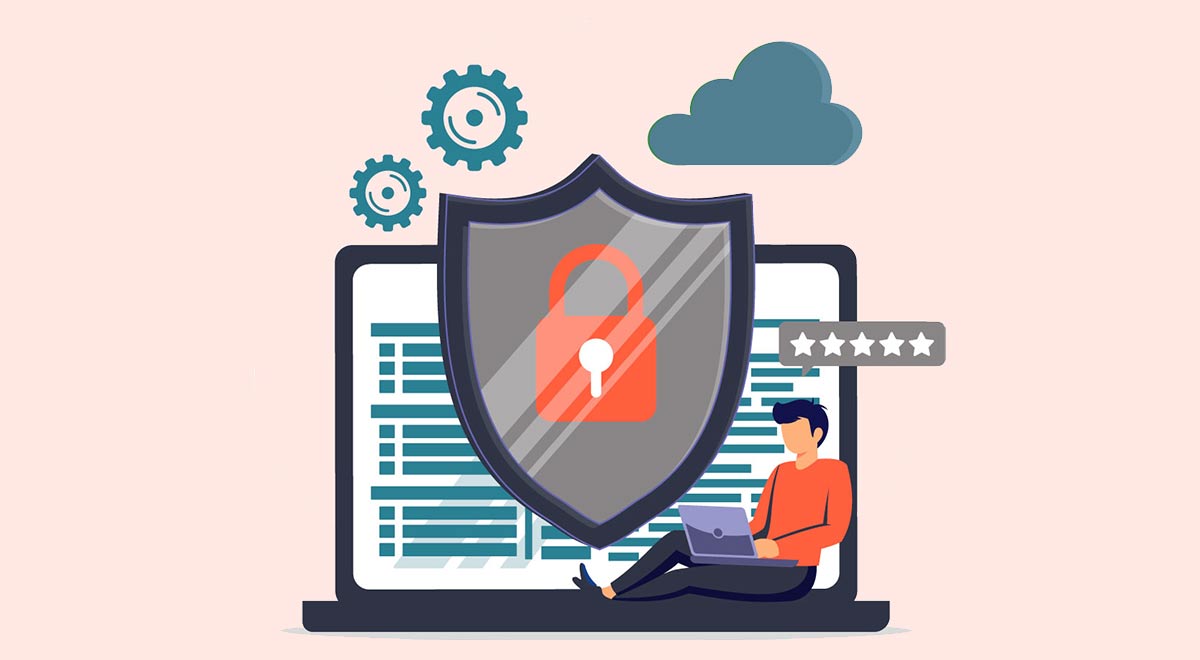Remote online notarization (RON) has emerged as a convenient solution for executing notarial acts remotely. However, the implementation of RON also brings significant challenges and risks that must be addressed to ensure the integrity and security of transactions. In this blog post, we will delve into the potential risks associated with remote online notarization, including cybersecurity vulnerabilities, privacy concerns, and compliance with federal and state regulations. Furthermore, we will provide insights into effective strategies and best practices to mitigate these risks. Lastly, we will offer practical guidance to stakeholders on how to maintain the integrity of remote online notarization transactions and leverage eNotaryLog to integrate best practices into their remote notarization processes.
Understanding the Risks of Remote Online Notarization
Cybersecurity Vulnerabilities
Remote online notarization introduces certain cybersecurity vulnerabilities that can put sensitive data at risk. These vulnerabilities include:
- The risk of unauthorized access to sensitive data: Remote online notarization involves the transmission and storage of sensitive documents and personal information. Without proper security measures, there is a risk of unauthorized access, potentially leading to data breaches and misuse of sensitive data.
- Potential for data breaches and identity theft: Cybercriminals may attempt to exploit vulnerabilities in the remote online notarization process to gain access to confidential information, such as personal identification details, financial data, or legal documents. This can result in identity theft, financial fraud, or other forms of misuse.
Mitigating strategies
To mitigate cybersecurity vulnerabilities in remote online notarization, the following strategies can be implemented:
- Implementing robust encryption protocols: Encryption ensures that sensitive data transmitted during the notarization process is protected from interception and unauthorized access. Strong encryption algorithms should be used to secure data both in transit and at rest.
- Multi-factor authentication: Implementing multi-factor authentication adds an extra layer of security by requiring users to provide multiple forms of identification, such as passwords, biometrics, or one-time verification codes. This reduces the risk of unauthorized access even if one factor is compromised.
- Secure document storage: Storing notarized documents in secure and encrypted storage systems helps prevent unauthorized access. Robust access controls, such as role-based permissions and audit logs, should be implemented to monitor and track access to sensitive documents.
Privacy Concerns
Remote online notarization involves the handling of confidential client information, and it is crucial to address privacy concerns. These concerns include:
- Ensuring the confidentiality of client information: Client information shared during the remote online notarization process must be kept confidential. Unauthorized access or disclosure of this information can lead to reputational damage and legal consequences.
- Protecting against unauthorized disclosure: Unauthorized disclosure of client information, either through internal or external sources, can compromise the privacy and trust of the parties involved. Adequate measures should be in place to prevent such unauthorized disclosures.
Mitigating strategies
To mitigate privacy concerns in remote online notarization, the following strategies can be implemented:
- Implementing strict access controls: Limiting access to client information to authorized individuals only helps prevent unauthorized disclosure. Access should be granted on a need-to-know basis, and proper authentication and authorization mechanisms should be in place.
- Privacy policies: Clearly defined privacy policies should be established, outlining how client information is handled, stored, and shared during the notarization process. These policies should comply with applicable data protection regulations and provide transparency to clients.
- Secure communication channels: Utilizing secure communication channels, such as encrypted email or secure file transfer protocols, ensures that client information is protected during transmission. Avoiding the use of insecure communication channels, such as regular email or unencrypted messaging apps, helps minimize the risk of interception and unauthorized access.
Compliance with Regulations
Remote online notarization must adhere to federal and state-specific regulations and requirements. Navigating these regulations can be challenging due to their evolving nature. Key compliance considerations include:
- Navigating federal and state-specific regulations and requirements: Different jurisdictions have varying regulations and requirements for remote online notarization. Notaries must be aware of and comply with the specific laws applicable to their jurisdiction, which may include e-signature laws, notary statutes, and regulations governing electronic transactions.
- Adhering to e-signature and notary laws: Remote online notarization must comply with e-signature laws, which define the validity and enforceability of electronic signatures. Additionally, notary laws and regulations provide guidelines on the acceptance of electronic notarizations and the requirements for notarial acts conducted remotely.
Mitigating strategies: To ensure compliance with regulations in remote online notarization, the following strategies can be employed:
- Staying updated on evolving regulations: As laws and regulations surrounding remote online notarization continue to evolve, notaries and stakeholders should stay informed about any changes or updates. Regularly reviewing and understanding the applicable federal and state-specific regulations helps ensure compliance.
- Leveraging compliant technology platforms: Utilizing technology platforms specifically designed for remote online notarization, such as eNotaryLog, can help ensure compliance with regulatory requirements. These platforms often incorporate built-in compliance features and adhere to industry standards, providing a secure and compliant environment for notarization.
- Conducting regular audits: Regular audits of remote online notarization transactions and processes help identify any potential compliance gaps or areas that require improvement. Audits can be performed internally or by engaging external auditors with expertise in notarial practices and compliance.
Leveraging eNotaryLog for Enhanced Security and Compliance
Integration with Secure Notarization Platforms
eNotaryLog offers robust features for secure document management, streamlining notarial acts, and ensuring compliance with regulatory standards. Key aspects of leveraging eNotaryLog for enhanced security and compliance include:
- Utilizing eNotaryLog’s features for secure document management: eNotaryLog provides a secure platform for storing and managing notarized documents. It offers encryption capabilities, access controls, and secure storage infrastructure, ensuring that sensitive documents are protected from unauthorized access or disclosure.
- Streamlining notarial acts and document workflows: eNotaryLog simplifies and automates the notarization process, enabling efficient and streamlined workflows. It facilitates the electronic preparation and execution of notarial acts, reducing manual tasks and potential errors. This streamlining enhances efficiency and accuracy while maintaining compliance.
- Ensuring compliance with regulatory standards: eNotaryLog is designed to comply with applicable regulatory standards and requirements for remote online notarization. It incorporates features and functionalities that align with e-signature laws, notary statutes, and other relevant regulations. Leveraging eNotaryLog helps ensure compliance throughout the notarization process.
Auditing and Monitoring Capabilities
eNotaryLog offers auditing and monitoring capabilities that enhance transparency, accountability, and compliance. Key aspects of leveraging these capabilities include:
- Conducting regular audits of notarial acts and transactions: eNotaryLog enables the auditing of remote online notarization transactions, allowing stakeholders to review audio/visual recordings and assess the integrity of each notarial act. Audits can help identify any potential compliance issues, errors, or inconsistencies and facilitate corrective actions.
- Tracking and documenting each step of the notarization process: eNotaryLog tracks and documents the various steps involved in the remote online notarization process. This includes capturing timestamps, user actions, document versions, and other relevant information. The detailed audit trail ensures a thorough record of the entire notarization process, enhancing transparency and facilitating compliance.
- Enhancing transparency and accountability: By leveraging eNotaryLog’s auditing and monitoring capabilities, stakeholders can demonstrate transparency and accountability in their remote online notarization practices. The ability to provide a comprehensive audit trail adds credibility to notarized documents and helps address any potential disputes or challenges.
Integration of Best Practices
eNotaryLog promotes the integration of industry-leading security and privacy practices, as well as adherence to regulatory guidelines and e-signature standards. Key aspects of leveraging eNotaryLog to integrate best practices include:
- Incorporating industry-leading security and privacy practices: eNotaryLog aligns with industry best practices for security and privacy. It employs robust encryption protocols, secure access controls, and data protection measures to safeguard sensitive information. By utilizing eNotaryLog, stakeholders can benefit from the platform’s security expertise and adhere to established industry standards.
- Adhering to regulatory guidelines and e-signature standards: eNotaryLog ensures compliance with relevant regulatory guidelines and e-signature standards. It provides the necessary features and functionalities to support legally valid electronic signatures and remote online notarization practices. By leveraging eNotaryLog, stakeholders can confidently comply with applicable laws and regulations.
- Mitigating risks through the adoption of proven methodologies: eNotaryLog incorporates proven methodologies for remote online notarization, drawing on industry experience and best practices. By utilizing the platform, stakeholders can benefit from the established approaches and strategies that mitigate risks associated with cybersecurity, privacy, and compliance. This helps to enhance the overall security and reliability of remote online notarization transactions.
Remote online notarization offers undeniable convenience, but it also introduces significant risks that must be proactively addressed. By leveraging eNotaryLog’s robust features and integrating best practices into remote notarization processes, businesses can navigate the challenges and build a secure and reliable environment to maintain the integrity of their remote online notarization transactions. With a focus on security, privacy, and compliance, stakeholders will instill trust and confidence in the digital notarization process, paving the way for the widespread adoption of remote online notarization. Visit enotarylog.com to learn more!



